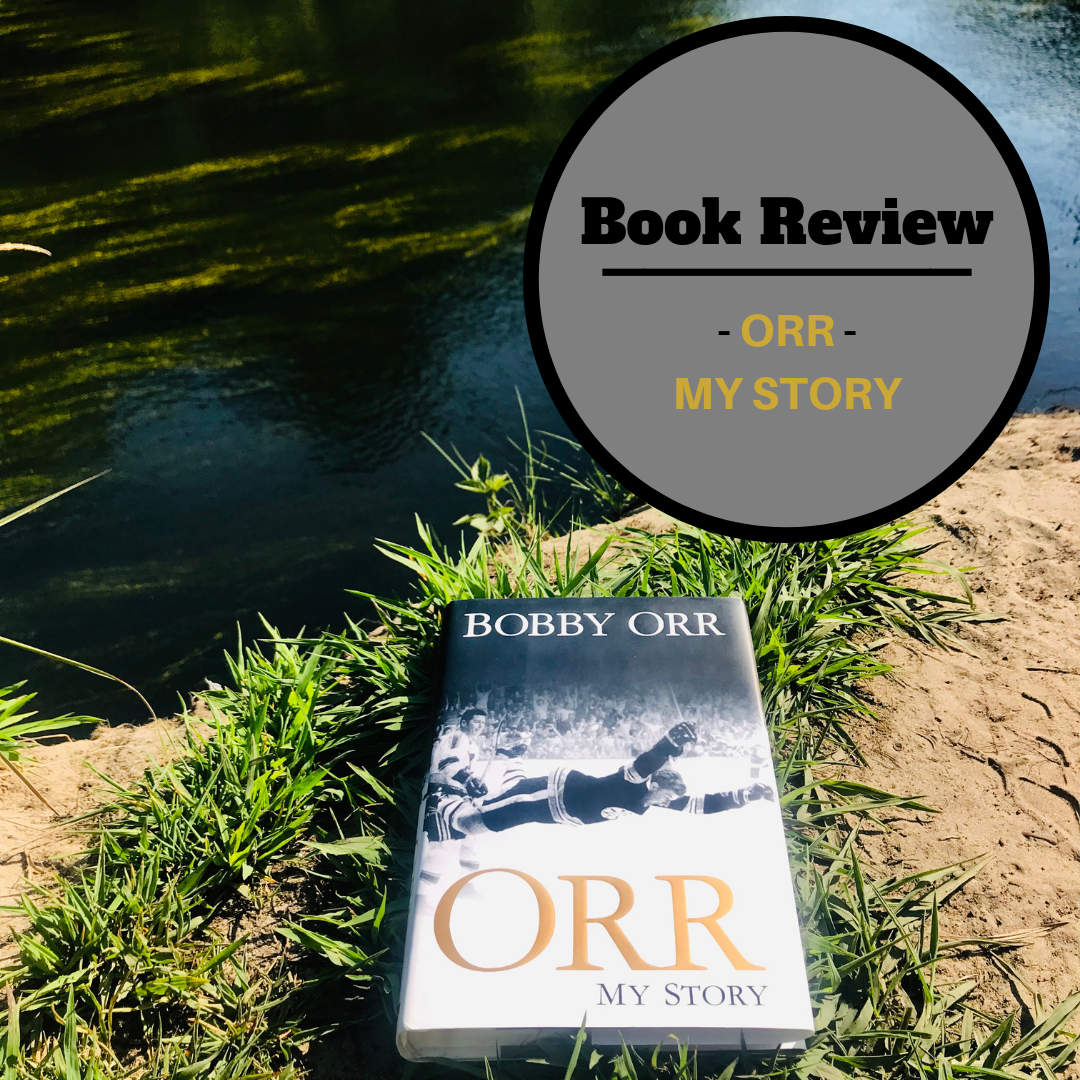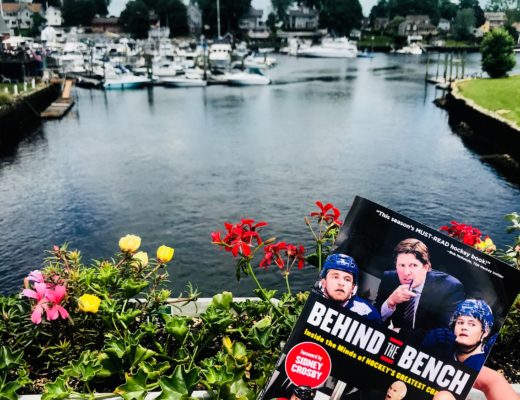Nothing about Bobby Orr screams “flashy”. Aside from his iconic statue in front of TD Garden, little about the hockey legend’s life would tell you that he enjoys being in the spotlight. For someone who has made and everlasting impression on the game of hockey, he self-admittedly is not a great public speaker, nor someone who particularly takes to sitting in front of a camera.
In his book Orr – My Story Bobby Orr finally tells the story of his life that the hockey world has been waiting for. From his upbringing in Parry Sound, Ontario, to his career in Boston and beyond, Orr touches on both public and private aspects of his life. He goes to great length to mention the names of people who were instrumental in his development as not only a professional athlete, but also as a person.
Orr wants to help people live an honest life by detailing the successes and failures he had on his road to the National Hockey League. While the clear focus of the book is on Bobby Orr’s life as one of the best hockey players the game has ever seen, there is no shortage of life lessons to be pulled from his work.
The impact hockey has had on Orr’s life is clear in reading his book, and though he might not be one of the most poetic writers you read in your life, his ability to recount stories from his youth gives the reader a glimpse into the life of a Canadian boy who grew up playing shinny on Georgian Bay.
Learning from Greats
During his time in Boston, Orr rubbed shoulders with some of the most iconic men in the game. From rooming with Johnny “Chief” Bucyk, to being coached by Milt Schmidt and Don Cherry. Orr was also teammates Derek Sanderson, a man quite unlike himself, who had a roller coaster of a career in the NHL. He is specifically grateful for his relationship with Don Cherry who he described as a “player’s coach” who “tells it like it is”. Anyone who has had any exposure to “Grapes” knows that “tells it how it is” is pretty spot on.
Orr also had the pleasure of meeting Muhammad Ali, Arnold Palmer and Ted Williams. He describes what it was like to be in the presence of men who were so dominant in their own respective sports, and he recalls the experiences he had with each of them. It is rare to get such a unique insight into the personal relationships of athletes with such legendary status. Orr gives the reader an idea of what it was like to interact with each of these men on an intimate level.
A Message to Young Players
In his book, Bobby Orr addresses both players that are looking to go pro, and those who are simply playing the game for fun. He is an advocate for hockey in the sense that he not only wants to see the sport flourish at an elite level, but he also wants to make sure that the game can be enjoyed by anyone, regardless of skill level. Orr is self-critical, and lets readers know that he didn’t always make the right decisions in his life. However, one quality he holds firm to about himself is that he never asked for praise from anyone, and he implores young players to never get a big head because they are successful athletes on the ice.
In a plea to those skillful kids, Orr goes to significant length to address instances in his time as a consult to young players where there was a sense of entitlement present that was wholly unwarranted. Even those who have risen to great fame should hold themselves accountable in their actions as public figures, and ultimately, as ambassadors for the game of hockey.
Orr details the difficulties he faced in pursuit of a career as a professional hockey player. From leaving home at a young age to live with a billet family to attend school away from home, to putting in time and effort to become great. Orr states, “you don’t win by being good. You win with hard work and sacrifice. Without that, skill is just potential.” While the benefits of a career as a professional athlete are well know, Orr impresses upon readers the challenges that must be overcome to reach this goal.
An Unfortunate End
Most people are familiar with the fact that Bobby Orr had a rather brief career in the NHL, calling it quits at just 30 years old due to degenerating knee problems. Often forgotten is how Orr left Boston for Chicago where he spent three years, taking an entire season off in 1977-1978, in an attempt to rehab enough to participate in the following season. He played just six games in 1978-1979 before hanging up his skates for good.
The entire ordeal was heartbreaking for nearly everyone involved. From the Boston faithful to fans of hockey in general, there had been no player before like number four. To see his incredible career come to an end at a time when he could have been in his prime years under other circumstances was tragic. In his book he describes his feelings at the time, and what led up to his final decision to retire.
A Message to Coaches
Orr praises the coaches during his career that allowed him to play the game that came naturally to him. He is critical towards coaches who run systems where a player is supposed to fit into a certain role like a cog in a machine. Orr also stresses that kids should not be over-trained, and in training, the focus should not be so much on bulking up, but rather working speed and athleticism. This is a trend we are already seeing in the National Hockey League, especially in defensemen. The newer generation of defensemen is geared towards speed and offensive talents. This style allows for more creativity, in line with Orr’s views of how the game should be played naturally.
A Message to Parents
Throughout the book Orr touches on various aspects of his life where he was molded by his parents into the man he is today. He learned core values from his father that he used to stay true to himself as he entered the professional hockey world. This allowed him to not become selfish and entitled, but instead remain humble, never thinking he was worth more than somebody else.
Orr reminds parents that hockey is not an investment and that parents should not treat it as such. The vast majority of kids never become professional hockey players, and those who are pushed too hard towards becoming great can often times lose a desire to play the game. Growing up as a youth hockey player I saw this exact thing happen around me when parents were too hard on their kids, to the point where they didn’t want to play anymore. I’m not saying a push in the right direction isn’t warranted from time to time, but I have also seen parents that take the game way too seriously, and their kid suffers because of it. After all, it is just a game.
On top of this philosophy Orr has helped create the Chevrolet Safe and Fun Hockey Program which is geared towards allowing kids to enjoy the game, and making sure that everyone involved is part of a healthy environment where kids can enjoy hockey and grow not only on the ice, but as people in general.
A “State of the Game” Address
Bobby Orr doesn’t want to be called an old timer, but there are certain aspects of the game he would like to see altered in one way or another. Without giving away too much of the book, I’ll use a quote from Orr to describe one issue he has with players today in the league, “The amount athletes make today doesn’t bother me in the least. What concerns me is whether they earn it every single night.” Orr also weighs in on the goaltender’s trapezoid, delay of game penalties, and precautions that could be taken to better protect players on the ice.
While he isn’t an advocate for returning the game to what it once was, Orr certainly values the ability for players to stand up for themselves and teammates on the ice. There have been some much needed changes to the game, in particular those that make a move towards increasing player safety. Yet the league is constantly experimenting with rule changes to see what works and what doesn’t, and if given the chance, Orr would likely eliminate a few rules that did not quite fix the issues they were created to solve.
In Conclusion
As I am writing this post, it is the eve of the 2018-19 regular season. Hockey is nearly back and there is a buzz of excitement across the hockey world. It is hard to believe, but in just a few short months it will be Christmas time and the New Year, when the Boston Bruins face off against the Chicago Blackhawks at Notre Dame Stadium.
What a great time of year to purchase a copy of Orr’s book for the Boston Bruins fan in your life. I would encourage hockey fans in general to look into this book as well. Orr’s wisdom spans the entire hockey universe, and his knowledge and advice would be beneficial to any hockey player or parent out there.
Want to buy the book? Check it out Orr – My Story on Amazon.
Like this article? You can read all of our book reviews here.
This content uses referral links. Read our disclaimer policy for more info.


